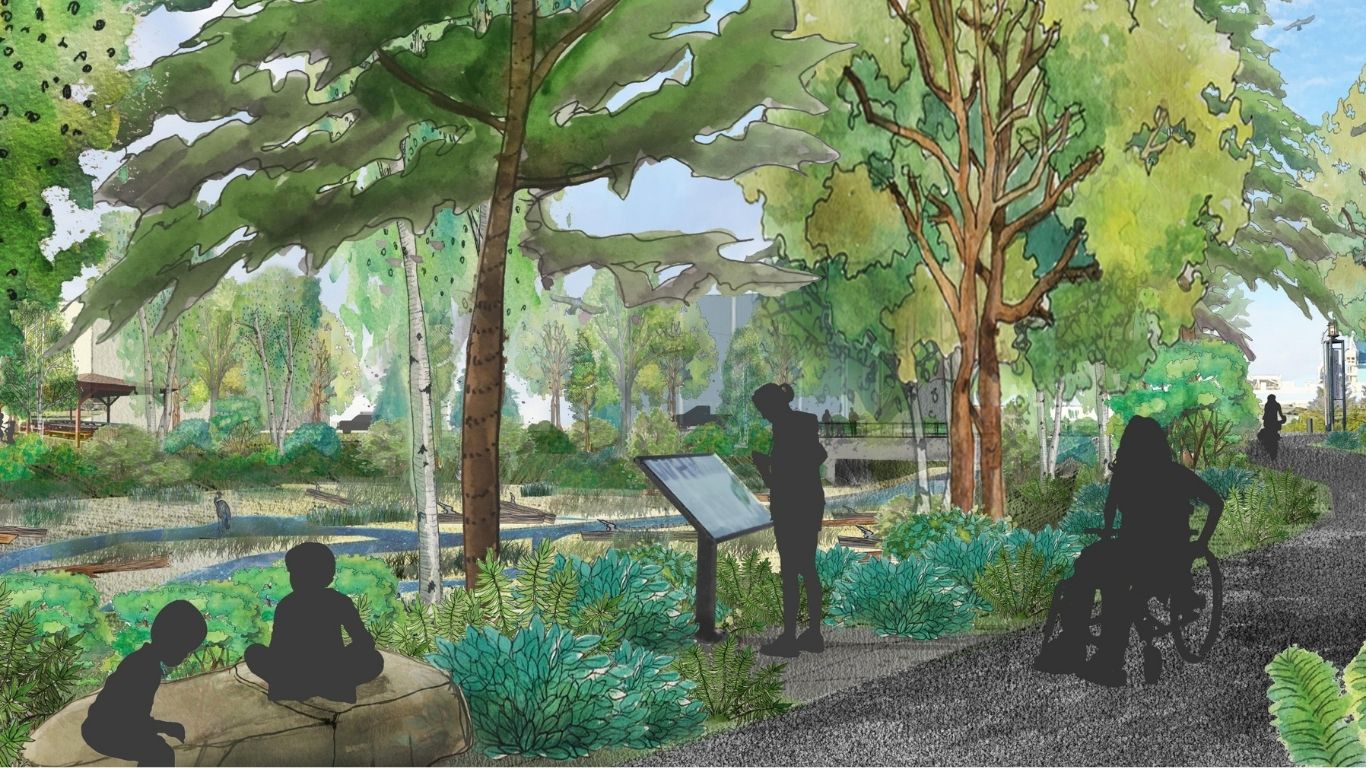Franklin County Appeal Summary
Between 1960 and 1990 Washington state experienced a 41% population increase, much of it in the unincorporated areas outside cities, straining local government resources. Growth was largely unplanned and unregulated; and rural wetlands, forests, and farms were lost to strip malls and suburban housing. Counties, cities, and towns lacked the tools to effectively manage growth.
The Growth Management Act (GMA) was passed in 1990 to address these issues. The GMA requires that the fastest-growing cities and counties have Comprehensive Plans and development regulations to guide growth. Cities and counties must notify the public when they are updating their Comprehensive Plans and seek public input. Growth must be contained inside Urban Growth Areas (UGAs). Furthermore, all jurisdictions are required to identify and protect critical environmental areas. The GMA allows participating members of the public to appeal comprehensive plans and UGA expansions to the Growth Management Hearings Board (GMHB). The GMHB is a state agency that hears appeals alleging that comprehensive land use plans, development regulations, and amendments do not comply with the GMA or the State Environmental Policy Act.
Why does the Growth Management Act require urban growth areas (UGAs)?
The GMA requires UGAs and limits their size for many reasons. UGAs have the following benefits:
- Compact urban growth areas help conserve water long-term.
- Urban growth areas encourage housing growth in cities and towns and protect rural and resource lands.
- Reducing development in rural areas and natural resource lands can also have significant environmental benefits, such as protecting water quality, working farms and forests, and fish and wildlife habitat.
- Urban growth areas help keep our existing cities and towns vibrant and economically desirable by focusing growth and infrastructure into existing cities and towns.
- Urban growth areas promote healthy lifestyles by providing opportunities for walking and bicycling.
One of the most important benefits is that compact urban growth areas (UGAs) save taxpayers and ratepayers money. When the GMA was passed, there was concern that UGAs would restrict land supply causing increases in housing costs but that has not been the case. In a study published in a peer reviewed journal, John Carruthers and Gudmaundur Ulfarsson analyzed urban areas throughout the United States including Franklin County. They found that the per capita costs of most public services declined with density and increased where urban areas were large. Compact urban growth areas save taxpayers and ratepayers money.
How does the Growth Management Act Protect Agricultural Land?
The GMA helped to reduce the further loss of vital agricultural lands. The American Farmland Trust (AFT) conducted a comprehensive study of farm and ranch land conversion. The AFT ranks Washington in the top twelve in policy response to the loss of agricultural lands and ranks Washington second only to Oregon when it comes to land use planning, thanks to the GMA. Additional info here and here. Futurewise has been instrumental in protecting farms and ranches in Southeastern Washington including Benton and Franklin Counties. Here are some of the ways that Futurewise has worked to contain sprawl in Southeastern Washington:
- On July 28, 2020, the Growth Management Hearings Board concluded that a 279+ acre comprehensive plan amendment to expand the UGA violated the GMA’s requirements for sizing UGAs because the land in the expansion is farmland and wildlife habitats. The City of Kennewick appealed. Futurewise is defending the Board’s decision before the court of appeals, Washington’s second highest court.
- Futurewise and Benton County worked for over a year to strengthen Benton County’s comprehensive plan update, which was appealed by Futurewise in early 2018. The resulting settlement agreement includes safeguards for critical water resources in the county.
- In 2015, Futurewise appealed the Benton County Urban Growth Area expansion of 1,263 acres. The GMHB held that this expansion violated the GMA because the 1,263 acres qualified as agricultural lands of long-term commercial significance and the county’s UGA was already larger than needed to accommodate the county’s 20-year projection for population and employment growth.
- In 2010, Futurewise appealed Benton County’s comprehensive plan amendment to add 178.36 acres of farmland to its UGA near Richland. After Futurewise filed its brief, Benton County agreed to repeal the UGA expansion.
- In 2009, Futurewise appealed Benton County’s comprehensive plan amendment to expand the UGA onto 747 acres of the Red Mountain American Viticultural Area (AVA). The Growth Management Hearings Board agreed with Futurewise that this expansion violated the GMA and Benton County repealed the expansion.
Currently, Futurewise is working to protect almost 3,000 acres of agricultural land in Franklin County in the proposed expansion of the Pasco UGA. For the past three years, we have worked to convince the City and County to accommodate growth in Pasco on land that is not designated agricultural lands. Our comment letters can be found here.
Franklin County has designated much of the land in the proposed UGA expansions as agricultural lands of long-term commercial significance. The comprehensive plan in effect when the county approved the City of Pasco UGA expansion showed large areas were agricultural lands. Both the current and past Franklin County Comprehensive Plans designated soils with Land Capability Classifications of 1 through 3 as Agricultural Lands of Long-term Commercial Significance. An estimated 2,985 acres, 92 percent of the total area added to the UGA, have Land Capability Classification 1 through 3 soils.
Additionally, the American Farmland Trust has identified much of the UGA expansions as “nationally significant agricultural land.” Nationally significant agricultural land is a designation for farmland that is best suited for long-term cultivation and food production. It was developed by the Farms Under Threat study. The report exposes the threats facing working farms and policy efforts, state by state, to slow the pace.
Furthermore, the U.S. Department of Agriculture Natural Resources Conservation Service identifies 2,781 acres, 85.5 percent of the proposed UGA expansions, as prime farmland and farmland of statewide importance. These are U.S. Department of Agriculture classifications for highly productive farmland. Most of the land in the UGA expansion is used for agricultural production.
In spite of these protections, the AFT estimates that between 2001 and 2016, 97,800 acres of agricultural land was lost in Washington State “enough land to generate $61 million in annual revenue.” According to Franklin County’s 2016 Economic Development Plan, “Since before statehood, fertile soils, available irrigation water, sunny skies and long summer daylight hours have made agriculture a cornerstone for economic development” in Franklin County. Given the economic value of agriculture to the City of Pasco and Franklin County, and the productivity of the farmland in the proposed UGA expansions, we need to conserve this highly productive working farmland.
The GMA prohibits including Agricultural Lands of Long-term Commercial Significance within a UGA unless the county or city has a purchase or transfer of development rights program adopted and implemented for those lands. Neither Pasco nor Franklin County has such a program. Pasco also does not have an agricultural comprehensive plan designation or zone in either the Pasco Municipal Code or the proposed comprehensive plan. So, it was not legal to include the agricultural lands of long-term commercial significance in the UGA.
How can the City of Pasco Protect Farmland, Increase Density and Provide Affordable Housing?
We have encouraged friends and allies in the region to participate in the comprehensive planning process and have recommended that the City incorporate the following principles into the comprehensive plan:
- Protect the Tri-Cities regional airport from encroachment by residential development. – Surrounding the airport with houses will make future expansion of the airport expensive if not impossible. New homeowners will be adversely impacted by the airport noise and flights, and residents may make airport operations more difficult over time because of complaints.
- Include compact UGAs that are well designed and well furnished with amenities, encompassed by natural resource lands and a rural landscape.
- Design walkable neighborhoods with the densities and a mix of zoning to support local businesses and safe streets, with bike lanes and frequent transit to promote environmental and community health and reduce traffic congestion. This will reduce transportation costs, make neighborhoods more convenient, and increase opportunities for healthy activities.
- Provide for long-term capital facilities plan that will ensure that taxpayers in existing City of Pasco neighborhoods do not end up subsidizing the public facilities and services in new neighborhoods.
- Reinvest in existing neighborhoods and businesses such as historic downtown Pasco.
These types of changes can significantly improve the City of Pasco’s economy and quality of life for all residents and the City has already taken steps to do so. The City recently adopted a street connectivity ordinance to allow for shorter vehicle trips and increased options for non-vehicle transportation and access to transit. The City will also undertake a Housing Needs Assessment and has received funding from the Department of Commerce under HB 1923 to cover the costs of planning for zoning changes to increase housing capacity. Futurewise recommended that these changes be integral to the housing capacity analysis included in the comprehensive and accommodate much of the projected growth within the existing UGA.
Regardless of the outcome of this appeal we will continue to work with community partners on a multi-faceted approach to protect working farms, encourage affordable housing, protect natural resources, and help make Pasco and Franklin County great places to live, work, and operate a business. Sign up to learn more about our work in Eastern Washington and throughout the state here.


